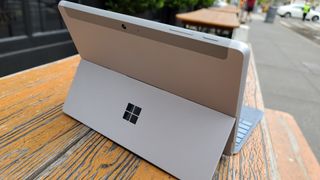Windows 10 update signals death of 32-bit laptops: What this means for you
Don't worry, your laptop should be fine

Goodbye, 32-bit Windows. Microsoft announced earlier this week that 32-bit builds of Windows 10 would be phased out, and new laptops will only operate on the 64-bit version.
"Beginning with Windows 10, version 2004, all new Windows 10 systems will be required to use 64-bit builds and Microsoft will no longer release 32-bit builds for OEM distribution."
- Best college laptops in 2020: Best laptops for students
- Best 2-in-1 laptops in 2020
What does this mean for you?
If you're unsure of the difference between 32-bit and 64-bit systems, don't worry, you probably won't be affected by the change to Microsoft's minimum hardware requirements. That's because Microsoft will continue to support existing 32-bit PCs with feature and security updates released through non-OEM channels.
You also shouldn't worry about a new laptop losing support -- every Windows 10 laptop released in the past few years is a 64-bit system. To find out if your laptop is 64-bit or 32-bit, search "system information" in Windows Search. On that screen, look for "System Type." Here, you'll either see x64 (64-bit) or x32 (32-bit).
There's no promise for how long Microsoft will continue to support 32-bit systems, and we wouldn't be surprised if they were phased out altogether in the near future.
Stay in the know with Laptop Mag
Get our in-depth reviews, helpful tips, great deals, and the biggest news stories delivered to your inbox.
Phillip Tracy is the assistant managing editor at Laptop Mag where he reviews laptops, phones and other gadgets while covering the latest industry news. After graduating with a journalism degree from the University of Texas at Austin, Phillip became a tech reporter at the Daily Dot. There, he wrote reviews for a range of gadgets and covered everything from social media trends to cybersecurity. Prior to that, he wrote for RCR Wireless News covering 5G and IoT. When he's not tinkering with devices, you can find Phillip playing video games, reading, traveling or watching soccer.
